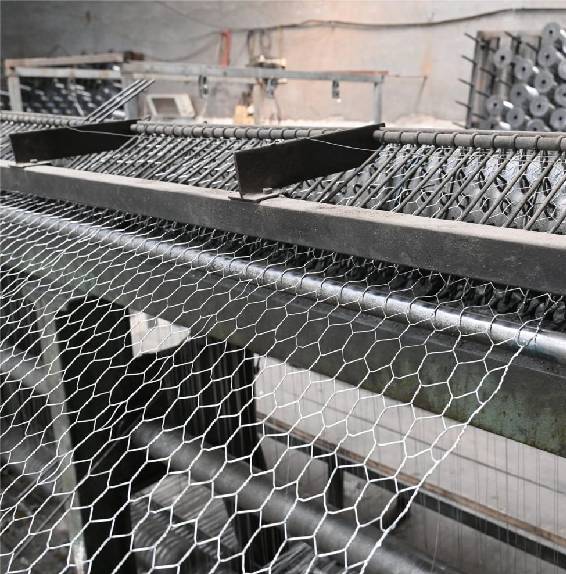Durable and Versatile Solid Galvanized Wire for Various Applications
Understanding Solid Galvanized Wire Characteristics and Applications
Solid galvanized wire is a versatile material widely used in various industries due to its unique properties and benefits. Made from high-quality steel wire that goes through a galvanization process, this type of wire has a protective zinc coating that enhances its durability and resistance to corrosion. This article explores the characteristics, manufacturing process, advantages, and diverse applications of solid galvanized wire.
Characteristics of Solid Galvanized Wire
Solid galvanized wire is renowned for its strength and longevity. The galvanization process involves dipping the steel wire in molten zinc, creating a robust barrier that prevents rust and corrosion. The wire typically comes in different gauges (thicknesses), which makes it suitable for a wide range of applications, from lightweight crafting to heavy-duty fencing. The surface finish of galvanized wire is smooth, allowing for easy handling and installation.
In addition to its physical properties, solid galvanized wire has excellent tensile strength, making it an ideal choice where durability and stability are essential. It can withstand significant stress without deforming or breaking, which is why it is frequently used in applications requiring reliable support and security.
Manufacturing Process
The manufacturing of solid galvanized wire involves several key steps. First, high-quality steel wires are drawn to the desired thickness. The wire undergoes a cleaning process to remove any impurities or rust from its surface. After cleaning, the wire is submerged in molten zinc to create a metallurgical bond—a process known as hot-dip galvanization. This ensures that the zinc coating adheres tightly to the wire, providing excellent corrosion resistance. Once the galvanization is complete, the wire is cooled, coiled, and prepared for distribution.
The thickness of the zinc coating can vary depending on the intended use of the wire. For instance, wires meant for outdoor applications typically have a thicker coating to withstand harsh environmental conditions.
solid galvanized wire

Advantages of Solid Galvanized Wire
The benefits of solid galvanized wire include its resistance to corrosion, which significantly extends its lifespan, making it a cost-effective choice in the long term. Users can rely on it in diverse environments—be it damp, salty, or humid—without concern for deterioration. Moreover, the wire requires minimal maintenance, saving time and resources in terms of replacement or repairs.
Another advantage is its versatility. Solid galvanized wire can be easily manipulated, straightened, and cut, which allows for its use in various projects, ranging from industrial applications to DIY crafts. In addition, its affordability makes it a popular choice for both commercial and residential projects.
Applications of Solid Galvanized Wire
The applications of solid galvanized wire are extensive and varied. One of the most common uses is in fencing—both for agricultural purposes and residential enclosures. The wire is used to create secure and durable barriers for livestock, gardens, and properties, effectively deterring intruders while allowing visibility.
Solid galvanized wire is also widely utilized in construction projects, where it serves as a tie wire for reinforcing concrete structures. It provides essential support during the curing process, ensuring stability and strength in buildings and infrastructure. Additionally, the wire is used in manufacturing processes, including the production of wire mesh, cables, and other wire products.
In the landscaping and gardening sectors, solid galvanized wire is often employed in plant support systems, such as trellises and plant ties. Its strength ensures that plants receive adequate support while promoting healthy growth.
In conclusion, solid galvanized wire is a durable, versatile, and cost-effective material suitable for a wide range of applications. Its unique characteristics, including corrosion resistance and excellent tensile strength, make it an ideal choice for industries such as agriculture, construction, and manufacturing. As consumers continue to seek sustainable and long-lasting solutions, solid galvanized wire will undoubtedly remain a staple in various sectors for years to come.
-
Space-Saving Chain Fence Hacks Vertical Gardening with Cyclone MeshNewsJul.16,2025
-
Innovations in Iron Nail Wire Production for Modern ConstructionNewsJul.16,2025
-
Creative Uses of Wire Netting Fence in Modern Landscape DesignNewsJul.16,2025
-
Barbed Wire Fence Innovations in Anti-Climb TechnologyNewsJul.16,2025
-
Architectural Uses of Umbrella Nails for Aesthetic Roof DesignsNewsJul.16,2025
-
Architectural Uses of Razor Barbed Wire in Secure Urban DesignNewsJul.16,2025




